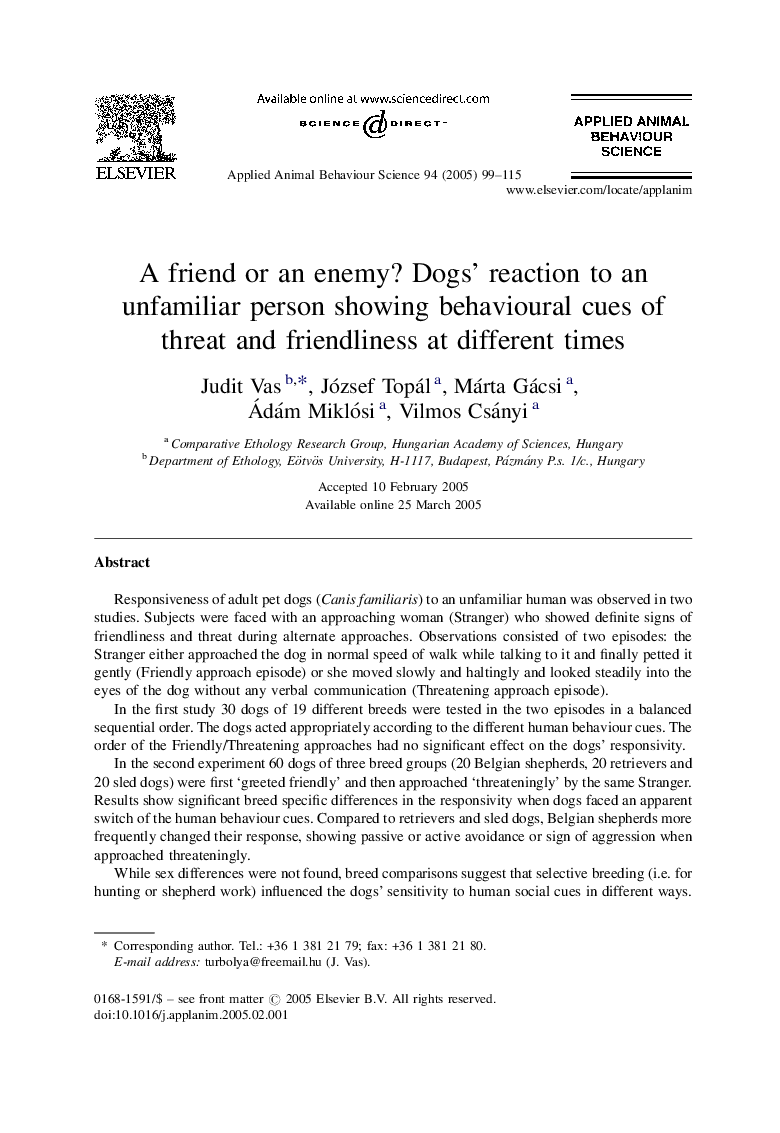| Article ID | Journal | Published Year | Pages | File Type |
|---|---|---|---|---|
| 9475861 | Applied Animal Behaviour Science | 2005 | 17 Pages |
Abstract
While sex differences were not found, breed comparisons suggest that selective breeding (i.e. for hunting or shepherd work) influenced the dogs' sensitivity to human social cues in different ways. Results also support the hypothesis that human influence (domestication) has led to extreme flexibility of the dogs' situation-relevant behaviour while interacting with an unfamiliar human.
Related Topics
Life Sciences
Agricultural and Biological Sciences
Animal Science and Zoology
Authors
Judit Vas, József Topál, Márta Gácsi, Ádám Miklósi, Vilmos Csányi,
